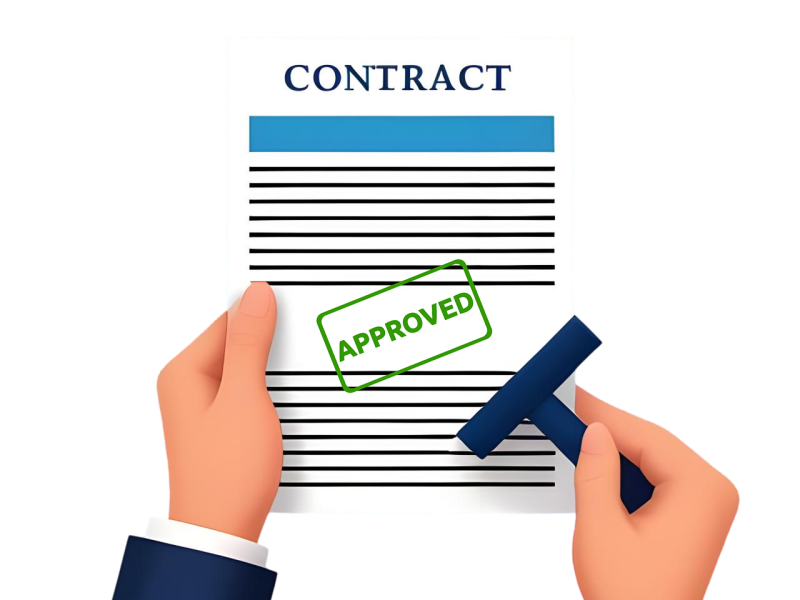If you’re new to Germany, VAT (or Mehrwertsteuer) might feel like a mystery at first. This guide is here to help you understand how it works, how much it costs, and what it means for you as a consumer or even a small business owner!
What is VAT (Mehrwertsteuer) in Germany?
In Germany, VAT, known as Mehrwertsteuer (MWSt), is a type of sales tax. It’s a percentage added to most goods and services you buy, which goes to the government. Every time you shop, eat out, or pay for services, you’re probably paying VAT.
How Much is VAT in Germany?
There are two main VAT rates in Germany:
- Standard VAT Rate: 19%
This is the default rate for most goods and services, like clothing, electronics, cars, and non-essential items. - Reduced VAT Rate: 7%
This lower rate applies to essentials like groceries, public transport, books, and certain cultural services. So, if you’re at the supermarket, most food items should include only 7% VAT.
Who Pays VAT?
Everyone! When you buy something in Germany, the VAT is usually included in the price tag, so you don’t have to worry about calculating it at the checkout. The business collects the VAT and later sends it to the government.
Quick Tip: VAT is always included in the prices displayed in stores and restaurants, so what you see is what you’ll pay. No surprises at checkout!
How Does VAT Affect Expats?
For most expats, VAT is just part of life in Germany, whether you’re shopping for clothes, dining out, or buying a book. However, if you’re working as a freelancer or running a small business, there are some important things to know:
- VAT for Freelancers and Business Owners
If you make over €22,000 a year as a freelancer or small business owner, you’ll need to register for VAT and charge it on your invoices. This is important because it means collecting VAT from clients and paying it to the tax office. You can find more on VAT registration for businesses on the Federal Ministry of Finance’s site. - VAT Returns for Non-EU Residents
If you’re from a non-EU country, you might be able to get a VAT refund on certain purchases when you leave the EU. To qualify, you need to ask the store for a VAT refund form, get it stamped at customs, and then follow the process to claim your money back. Check out Global Blue’s guide on how to get a VAT refund in Germany for tourists. - Kleinunternehmerregelung (Small Business Exemption)
If your earnings as a freelancer or small business owner are below €22,000 annually, you can apply for Kleinunternehmer status. This means you don’t charge VAT on invoices, and it simplifies your bookkeeping! Learn more about the Kleinunternehmer rule here.
How Does VAT Work When Shopping Online?
When shopping online, VAT is still included if you’re buying from a German or EU-based store. However, for items shipped from outside the EU, you may have to pay import VAT, which is usually collected by customs. For more information on VAT for international purchases, check out the German Customs website.
FAQs About VAT in Germany
1. Can I get a VAT refund as a tourist?
- Yes, if you’re from outside the EU, you can request a VAT refund on eligible purchases. Just ask the store for a VAT refund form and keep your receipts! More details can be found on the Tourism Germany page.
2. Do freelancers have to charge VAT?
- It depends! If your yearly earnings exceed €22,000, you’ll need to charge VAT on your invoices. Otherwise, you can apply for the Kleinunternehmer status to keep things simple.
3. Is VAT the same across all EU countries?
- No, each EU country has its own VAT rates. Germany’s standard rate is 19%, while some other countries have higher or lower rates.
4. Why are some items only 7% VAT?
- The 7% rate is applied to essentials like food and public transport to keep these items more affordable.
Wrapping Up: VAT Made Easy
Understanding VAT in Germany isn’t as complicated as it may seem. Whether you’re a consumer, freelancer, or business owner, knowing the basics will help you navigate life here a little easier. Remember, VAT is already factored into most prices, so there’s no need to worry about surprise taxes at checkout. And if you’re running a small business, keep track of your income so you know whether VAT registration is required. More information about making and saving money in Germany, click here!




